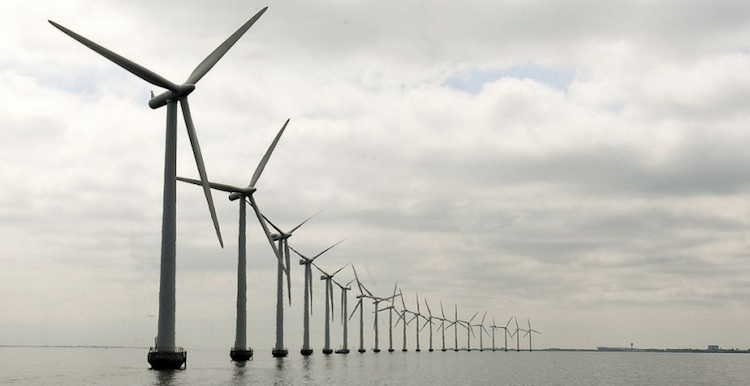By Santo D. Benerjee
NEW YORK (IDN) – A new report has expressed dissatisfaction with the current pace of progress on three global energy goals – access to electricity, renewable energy and efficiency, and stressed that more action is needed to meet energy targets by 2030 as envisaged in the Sustainable Development Goals (SDGs).
According to the latest Global Tracking Framework (GTF) report, released on April 3 by the World Bank and the International Energy Agency as part of the Sustainable Energy for All Knowledge Hub, the increase of people getting access to electricity is slowing down.
And if this trend is not reversed, projections are that the world will only reach 92% electrification by 2030, still short of universal access, warns the report. Only energy efficiency made progress towards meeting these objectives; with energy savings during the 2012-2014 GTF reporting period enough to supply Brazil and Pakistan combined.
To meet Sustainable Energy for All objectives, it is estimated that renewable energy investment would need to increase by a factor of 2-3, while energy efficiency investment would need to increase by a factor of 3-6. Estimates suggest that a five-fold increase would be needed to reach universal access by 2030., says the media release.
“While the research found that most countries are not doing enough, some are showing encouraging progress, including Afghanistan, Cambodia, Kenya, Malawi, Sudan, Uganda, Zambia, and Rwanda,” said a media release.
“These countries underscore that accelerating progress towards universal access is possible with the right policies, robust investments (both public and private) and innovative technology.”
Rachel Kyte, CEO and Special Representative to the UN Secretary-General for Sustainable Energy for All, said: “If we’re to make access to clean, affordable and reliable energy a reality, action must be driven through political leadership. This new data is a warning for world leaders to take more focused, urgent action on access to energy and clean cooking, improving efficiency and use of renewables to meet our goals.”
The media release added: While we are making some progress – with many of the technologies we need available and policy roadmaps increasingly clear – it’s not enough. We all made the commitment to act, and every day we delay it becomes more painful and expensive.”
“This year’s Global Tracking Framework is a wake-up call for greater effort on a number of fronts. There needs to be increased financing, bolder policy commitments, and a willingness to embrace new technologies on a wider scale.
The World Bank is committed, alongside our international development partners, to support countries to reach these goals,” said Riccardo Puliti, Senior Director and Head of Energy and Extractives at the World Bank.
“The Global Tracking Framework demonstrates the urgency to speed up action on achieving Sustainable Energy for All. We at the IEA are proud to contribute once again to this key publication, which highlights the necessity of a global transition to clean, modern energy and ensure a prosperous and productive future for everyone,” said Dr Fatih Birol, IEA Executive Director.
The GTF was launched o April 3 at the three-day Sustainable Energy for All Forum. In New York. Report highlights include:
On access to electricity, as of 2014, 1.06 billion people still do not have electricity – only a slight improvement since 2012. Of particular concern are populous, low electricity access countries like Angola and the Democratic Republic of Congo, where electrification rates are declining.
Some low-access countries made rapid progress, increasing electrification by two to three percentage points annually, including Kenya, Malawi, Sudan, Uganda, Zambia, and especially Rwanda. Others, such as Afghanistan and Cambodia, are progressing rapidly by making greater use of off-grid solar energy, underscoring how new technologies can drive progress. Countries that are closing the access gap quickly will see improvements in education, health, jobs and economic growth.
On access to clean cooking, the repprt said, the number of people who use traditional, solid fuels to cook rose slightly to 3.04 billion (57.4 percent – barely up from 2012), indicating that efforts are lagging population growth. In Afghanistan and Nigeria, for example, access to clean cooking has been falling by about one percentage point annually.
At the other end of the spectrum, Indonesia made the most progress, raising access to clean cooking by more than eight percentage points annually. Vietnam and Sudan also fared well.
On renewable energy, overall progress is modest: While new power generation technologies such as wind and solar are growing rapidly – representing a third of the expansion in renewable energy consumption in 2013–2014 – they are growing from a very small base, only 4% of renewable energy consumption in 2012. The challenge is to increase reliance on renewable energy in the heat and transport sectors, which account for the bulk of global energy consumption.
Energy efficiency: Of the 20 largest energy consuming countries, Australia, China, Italy, Mexico, Nigeria, Russia, and the United Kingdom cut energy intensity by more than 2% annually – with the industrial sector making the greatest reductions. Going forward, the residential sector – which is becoming more energy intensive rather than less so – must be the focus of efficiency efforts. [IDN-InDepthNews – 10 April 2017]
Photo credit: SDGs Goal 7
IDN is flagship agency of the International Press Syndicate
facebook.com/IDN.GoingDeeper – twitter.com/InDepthNews

